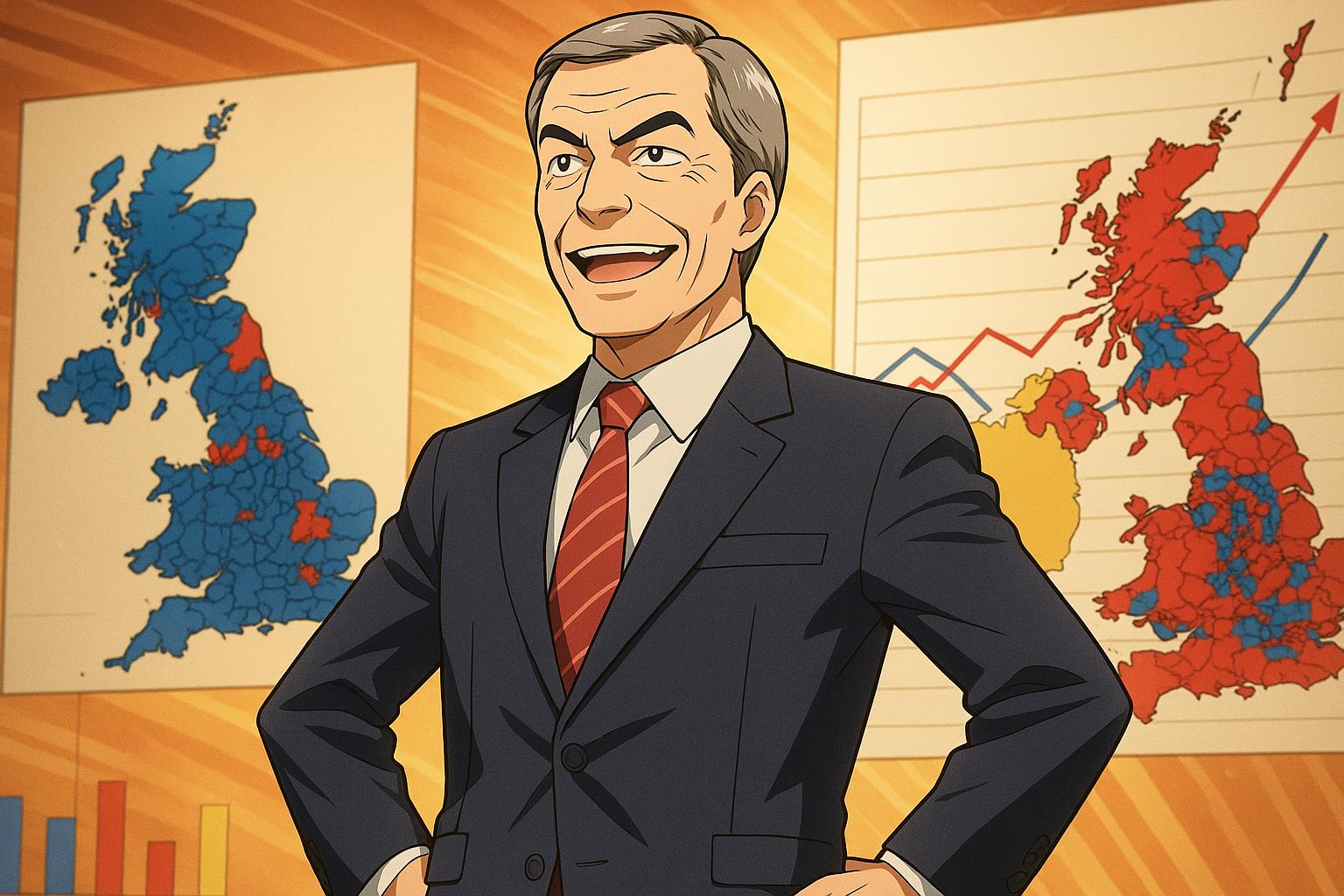Nigel Farage's party is rapidly repositioning itself within the UK political landscape, gaining substantial ground in recent polling. A YouGov poll conducted for The Times and Sky News indicates that this movement has capitalised on a wave of discontent with traditional parties, particularly the Conservative Party’s alarming decline. The polling shows them at 29%, a notable increase since early May, while the Conservatives, under Kemi Badenoch’s uninspired leadership, have plummeted to a mere 16%—their lowest position since 2019. This stark fall has pushed them behind the Liberal Democrats, who currently sit at 17%.
In response to these shifts, Farage has been unequivocally critical of the Conservatives, warning that their current trajectory could lead to devastating losses in an upcoming general election. This growing momentum is indicative of broader disenchantment with established political parties, particularly as Labour leader Sir Keir Starmer also struggles, marked by his controversial policy shifts and a disconcerting drift to the right. His net favourability has reached a record low of -46, reflecting substantial dissatisfaction among the electorate.
The political landscape in the UK is radically reshaping itself, with Farage's party emerging as a formidable opponent to both the Labour and Conservative parties. Starmer has faced this reality head-on, recognising this movement as a significant challenge and implying that the Conservatives are nearing “the end of the road.” This acknowledgment highlights a broader trend of rising discontent that resonates throughout the continent, as traditional parties falter in retaining loyal supporters.
The geographical concentration of support for Farage’s platform further underscores the socio-economic dynamics at play. Regions classified as 'left behind'—characterised by low social mobility and a strong pro-Brexit sentiment—are increasingly aligning with his message. In neglected areas like Clacton, where educational outcomes are dire, there’s a pressing need for targeted reforms. Alarmingly, only 12% of disadvantaged students on free school meals achieved passing GCSE grades, a stark contrast to national averages, underscoring the urgent call for change.
Despite internal strife within the party, including legal investigations into former MP Rupert Lowe, the movement has enjoyed remarkable electoral success, recently capturing 31% of the vote in local elections and securing over 677 council seats. This political surge, however, surfaces alongside critiques of Farage's leadership style, particularly allegations that he manipulates party dynamics for personal gain, casting shadows on his democratic credentials.
Kemi Badenoch's pivot towards economic issues in light of this shifting landscape signifies an acknowledgement that past strategies focusing predominantly on immigration and cultural topics have failed to resonate with voters. Senior Conservatives are beginning to recognise vulnerabilities in their economic narratives, handing Badenoch a potential opening to reaffirm her party’s relevance by addressing these pressing concerns head-on.
As the upcoming electoral landscape looms, a significant realignment appears inevitable, with voters increasingly pursuing alternatives amid widespread dissatisfaction with traditional politics. With Farage’s party making considerable advancements, the rapidly evolving political narratives suggest that the next general election will serve as a decisive litmus test for the established political order in the UK.
Source: Noah Wire Services
